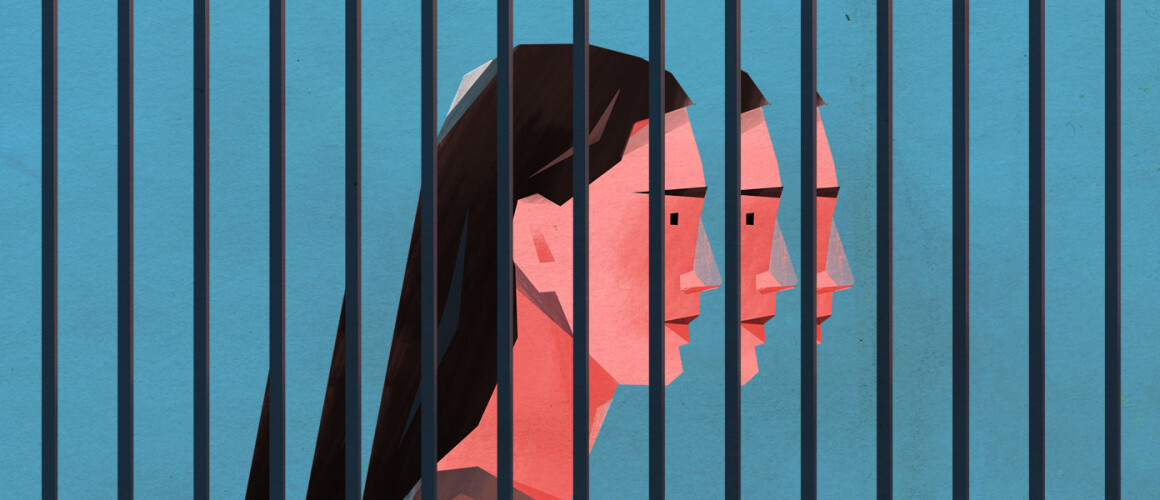Alyona Agafonova is a political prisoner
The blogger was sentenced to 10 months of compulsory work for making a video in which she ‘tickled’ the Motherland Calls statue in Volgograd
The ‘Political Prisoners. Memorial’ human rights project, in accordance with international standards, considers Alyona Agafonova a political prisoner. Agafonova has been convicted on a charge of public desecration of symbols of Russia’s military glory and insulting the memory of defenders of the Homeland for publishing a video intended as a joke. Agafonova’s prosecution violates her rights to freedom of speech and fair trial. We demand that Alyona Agafonova be immediately released and that her conviction be quashed.

What were the charges against Alyona Agafonova?
In July 2023, blogger Alyona Agafonova from Samara posted a video on Instagram that had been filmed near the Motherland Calls monument in Volgograd. In the video, Agafonova ‘tickles’ a chest of the statue, which is in the background, and falls into the grass at its foot.
Pro-Kremlin bloggers accused Agafonova of disrespecting the feats of previous generations. Initially, a criminal case was opened against Agafonova for desecration of burial sites (Article 244 of the Russian Criminal Code). When the case was transferred to Russia’s Investigative Committee, the charge was reclassified as public desecration of symbols of Russia’s military glory and insulting the memory of defenders of the Homeland (Article 354.1, Part 4).
After the initiation of criminal proceedings, Agafonova was allowed to remain at liberty on condition that she appeared in court. However, Agafonova left Russia and a warrant was issued for her arrest.
On 7 February 2024, Agafonova returned to Russia. She was detained and remanded in custody until trial.
On 5 April Agafonova was sentenced to 10 months of compulsory work.
Why do we consider Agafonova a political prisoner?
The article on desecration of symbols of military glory, under which Alyona Agafonova was prosecuted, was introduced into the Russian Criminal Code in 2014 after the annexation of Crimea and the beginning of the military conflict in eastern Ukraine. This law has become an additional instrument of repression, used to suppress public discussion about the role of the USSR in World War II and to criminalise criticism of Russian military symbols. Moreover, as Agafonova’s case shows, this law can also be used to criminalise light-hearted tourist videos.
There are no laws establishing a list of ‘symbols of Russia’s military glory.’ At the end of 2023, only one such symbol was established in law – the ribbon of Saint George. Nor is there a definition in law of what constitutes an ‘insult to the memory of defenders of the Homeland.’ The wording of the article on desecration of symbols of military glory does not comply with the principle of legal certainty and gives the authorities ample opportunity for unfounded and sometimes absurd charges.
The context and content of Alyona Agafonova’s video clearly indicates that she was making light-hearted videos and did not intend to insult participants in World War II. The videos presented no danger to the public and Agafonova’s actions provide no evidence of a crime.
A detailed description of Alyona Agafonova’s case and of our position is available on our website.
Recognition of an individual as a political prisoner does not imply the ‘Political Prisoners. Memorial’ human rights project agrees with, or approves, their views, statements, or actions.
How can you help?
You can donate to support all political prisoners in Russia.
